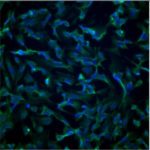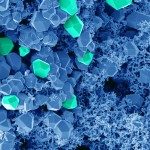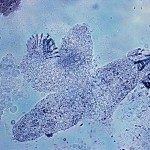Présentation
Malaria remains a major global health problem due to the increasing spread of drug resistance and more than 400,000 deaths per year. New drugs that target multidrug resistant parasites are of highest priority. The unicellular parasite is transmitted to humans through the bite of an infected mosquito. In order to survive in these two completely different hosts, the parasite adapts thanks to the plasticity of its genome. This plasticity is conferred by the epigenetic regulation. Epigenetics is based on chemical modifications of DNA and histones, such as DNA methylation and histone methylation and acetylation, that control the access to the DNA sequence and thus control the expression of the genetic information. These chemical modifications are reversible and thus can change a phenotype. It what happens for the parasite when it transfers from one host to the other during its life cycle. Since the epigenetic modifications are reversible, they can be modified by small molecules and thus constitute a most interesting therapeutic target till now poorly explored to treat malaria. The coordinator, Paola B. Arimondo, a chemist, head of Epigenetic Chemical Biology Unit, has developed inhibitors of DNA methylation that target cancer cells. The partner, Artur Scherf, a biologist, head of the Biology of the host-parasite interactions, has observed that dynamic DNA methylation changes in the human malaria parasite Plasmodium falciparum are linked to genes expression controlling its life cycle. A recent collaboration between the two teams has identified DNA methylation as a novel and powerful target that kills multi-drug resistant P. falciparum at the low nanomolar-level. Based on these innovative results, EpiKillMal proposes to combine the expertise of both partners in Epigenetics of malaria and the Chemistry of DNA methylation inhibitors to: (1) validate two distinct classes of DNA methylation inhibitors as new antimalarial drug candidates and propose drug candidates; (2) confirm the proof of concept using in vivo mouse models and (3) characterise the mechanism of action. These data will enable us to better understand the role of DNA methylation in Plasmodium. Chemistry and Biology are completely mixed and matched and there will be iterative exchanges between the two teams. The 3-years project will produce knowledge necessary to take a step towards the valorisation of the candidate drugs.
Funding: ANR





